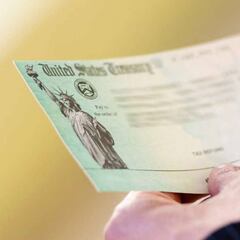New batch of unemployment tax refunds: when is it coming?
The IRS has announced the latest batch of tax refunds will soon be on their way to recipients bank accounts.


The IRS confirmed Monday that it has sent out another 430,000 unemployment-related refunds, with checks averaging $1,189. These are related to 2020 tax returns submitted last April, making it one of the longest periods that the IRS has needed to send out everyone's refunds. This is due to a swathe of factors, including changes to legislation as well as an underfunding that could not have come at a worse time with the amount of work it has had to deal with.
Related news:
- Will a new stimulus check happen in November 2021?
- Child Tax Credit October 2021 payment: what to do if I haven't received it?
- IRS tax refund delay: how many are unprocessed in August?
Why are they being sent?
The IRS was inundated with refunds after the passage of the American Rescue Plan Act in March. The act excluded up to $10,200 in 2020 taxable unemployment income, meaning millions of taxpayers were due refunds.
A person who filed later may receive their refund sooner than someone who filed earlier in the season. You may hear countless myths about it, but the truth is there’s a variety of reasons for possible delays: https://t.co/PFiedQsvmp pic.twitter.com/B8N6j72p4X
— IRSnews (@IRSnews) May 14, 2021
Unprocessed individual returns include tax returns from 2020 with errors and those returns requiring special handling such as those that require correction to the Recovery Rebate Credit amount or validation of 2019 income used to figure the Earned Income Tax Credit (EITC) and Child Tax Credit.
To date, the IRS says it has now distributed 11.7 million of these refunds, costing more than $14.4 billion.
Will more refunds come in the future?
Almost certainly. As of October 23, 2021, there are 9 million unprocessed individual returns. The IRS needs to send these refunds before the sending of 2021 tax returns or the backlog will be as big as this year's.
TaxWatch: Pandemic-related backlogs forced the IRS to pay out billions in interest on delayed tax refunds
— Stoccks (@stoccks20) November 1, 2021
By law, the IRS usually has to pay interest when it sends taxpayers refunds 45 days or later after the tax filing deadline. Marketwatch https://t.co/lIWwlwXVM6
That doesn't mean it will be quick to complete the rest. It is taking the IRS more than 21 days to issue any related refund and in some cases this work could take 90 to 120 days. The IRS is having to correct significantly more errors on tax returns than in previous years. However, the organization has reduced the number of returns requiring special handling from an historical high of 9.8 million on May 1, 2021 to the current level of 514,000 individual returns as of October 23.
How to receive if you are due a refund
Related stories
In most instances, no further action is needed, but you may check Where’s my refund?.
The IRS is under no obligation to contact taxpayers about an imminent refund or when it is expected to be sent

